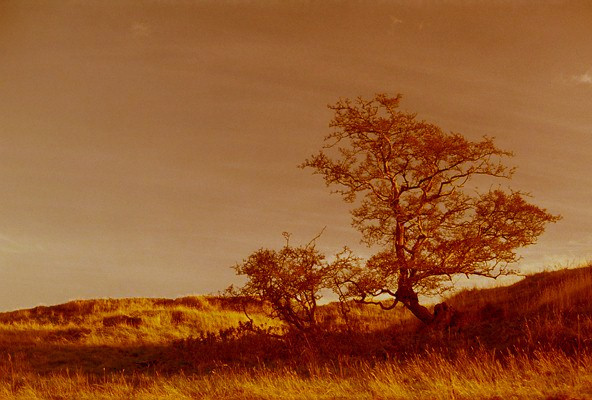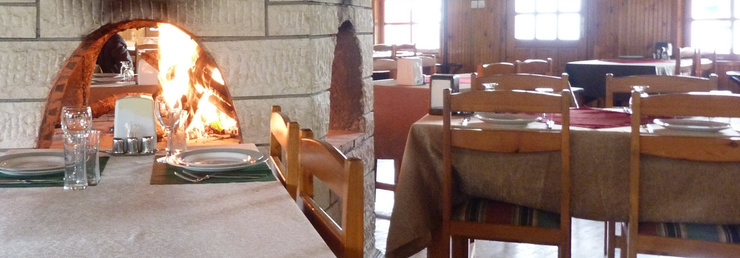Making a life, and a walk with Rose.
By Fernapple • 5 years ago •
One problem often faced by sceptics, and atheists, is the question, more often posed to them by believers than ever asked of themselves. “Where do you find purpose in life, if you do not believe in anything higher than material existence.” As though, presumably, spending your life on trying to get another hopefully better one, was not just utterly banal anyway, even if it was real. There are lots of usual answers that I do not want to bother with here, such as. “You make your own meaning.” Etc. But I will address if I may just one aspect of the question, which is ennui. Just how much is there on this little planet for a vivid, productive life, filled with new daily adventures.
Take exploring for example. It has become a commonplace today, in fact boringly so, to say that we live on a small planet, and in at least three senses it is true. In one sense it is true, that it is more than small enough to be nearly destroyed by us, though we overrate ourselves if we think we could really destroy it completely, even though we could easily make it completely unlivable for humans. It is also true, that in a very real sense, it forms but a tiny insignificant part of our known cosmos as a whole. While in the last and most banal of senses, it is certainly the case that, especially aided by jet engines, you may fly around the whole thing in just a few short hours.
But all of that misses one most important point, which is that in another way entirely, when viewed from the human scale, then the world is a very big place indeed.
There used to be a field I knew as a boy, which was known locally as the square mile moor. It was certainly big, though whether it was truly a square mile or not I never knew. It may even have been larger, several hedges having been removed over the years, so that you could no longer be truly sure to which bits the name applied. It was an old pasture, very uneven and weedy, with the odd clumps of old thorns here and there, some old but ineffective drainage ditches and bits of crumbling fences crossed it, with here and there a scattering of little ponds and wet hollows. It was perhaps an ideal place for a young children to explore and we certainly did that.

The field did teach vital lessons in many subjects. Lessons that were absorbed not just consciously through the ears and eyes, but were taken into the unconscious mind, by all the senses including the soles of the feet. For it was exploring the Mile Square more than anything, that first gave me a real sense of the bigness of things. Or what my maths teacher would, have called the power of the 'square', the way things grow rapidly when you start to multiply length by width.
Though until that time I had no idea that there was any connection between what we learned in her classes and the outer world, or indeed that there was any connection between any of the things we learned in school and real life. Understanding of that sort, only comes with maturity, and experience. For though until then I had loved my maths lessons with a passion, for their abstract beauty and the sheer delight that such ideas have for young minds. ( And the teacher was cute. ) I had no idea that they really 'meant' anything, beyond the arcane abstractions of the academic world in which my teachers obviously lived, and perhaps a few useful practical skills for the life of work. So much of the best of the things the best teachers really have to teach, is only really understandable in the light of experience, which is sadly why so much of education is wasted on the young.
I know a lady, a botanist by profession, with the highly appropriate name of Rose. When I first met her she was already in her eighties, though still hale in body and filled with the spirit of adventure, not only that, but she was determined to make the absolute maximum use of the indulgences that her age entitled her, to be as eccentric as she wished. One hot summers day we had walked a long way together examining some steep stony valleys, in search of interesting plants. We arrived back in the village late in the day tired and thirsty, to find that it contained a small tea room, empty apart from our own party of ten or so persons, we quickly rushed in and ordered refreshments, occupying a couple of tables at the back. The owners of the tea rooms had kindly provided each table with a hand crafted wooden puzzle, perhaps to amuse the visiting children and delay the onset of fractiousness. And since they were probably intended to keep children amused for the duration of a visit, they actually gave adults quite a challenging five minutes. Rose insisted that we solve the one on our table, and then, having solved that, that we swap it with the next table where the rest of our group were sitting. Having solved the one on the next table, it seemed to Rose quite appropriate, since we had the room to ourselves that we should change the puzzles round on the tables; and as you may guess this went on until we had been round all the ten or so tables that the tea room possessed.

Rose however was by no means short of attention span. Quite the contrary when you were out searching for plants, and especially when trying to identify quite rare grasses, she could stick to the task tenaciously, often covering only a few yards of ground in several long hours, and arguing the points excitedly all the time with whoever accompanied her. Because she firmly believed that you could not say you truly knew a place, until you had checked every square yard of it for everything of interest. Which meant that she often walked very slowly indeed. Often taking two or three hours to cover just a mile.
And how many miles would Rose have to walk to cover all of the square mile that is our moor. Well it is of course approximately a mile wide, so that each transit of the moor would need a walk of a mile, so you would say that it would not take long to cross it, and even at her gentle pace she would, in all probability, finish in time for lunch. So far it does not seem too much of a task for Rose to study our moor quite thoroughly. But this is where the power of squaring begins to raise its head, because the moor is also not just a mile wide but a mile long, one thousand seven hundred and sixty yards. Which means that to cover it completely, assuming that Rose can scan the ground to a distance of five yards on each side of her. Which she would, I think, actually consider a little superficial. Then she would cover ten yards width of moor at each transit. So that she would have to make at least one hundred and seventy six transits, or walk in other words one hundred and seventy six miles, just to examine our little local moor.
Rose of course could not be considered fast by anyone's standard. Yet at the other end of the scale and returning to what I said at the beginning of this passage, you can fly around half the world in a jet plane in just a day or so, perhaps allowing two days to go completely around and back to your start, give or take a little airport time. So presumably it would not take you long over fly every bit of it. Well no, you would actually take quite a long time, because you would come up against the power of the square again.
In any one circumnavigation you would cover approximately twenty five thousand miles, which is the circumference of the world if we allow that the plane will take a few meanders here and there. However the surface area of the world in square miles is that of a sphere with twenty five thousand units as its circumference. Which we work out with the formula – four times pi times radius squared – which if we assume a radius of three thousand nine hundred and sixty three miles equals, roughly 197359487 square miles, of which about 57,000,000 are land, a huge number. That is the amazing power of squaring up. And from that it follows that, taking the practical speed of a jet airliner at about 12000 miles a day, it would take you about 4790 days, or slightly over thirteen years to fly over each square mile of the earth, and that's just the land part alone, and multiply that by three and a half if you want to do the sea as well. All of which is assuming you can find an airline to carry you and you never stop.
So of course you know where this is all going now don't you? As you may have guessed he next thing that I am going to say is how long would it take you to explore all of it, fairly thoroughly on foot, as if you wished to map most of the major plant life like Rose. Well if you could cover a square mile in one day, say ten or more transits backwards and forwards, because I will assume that you are not nearly as diligent as Rose by any means. In fact if you like I will allow that you travel at the speed of a fairly average rambler, one of those people who plough through the country at such a speed, that they may as well go by car for all they ever see. Then you could cover about a square mile per day. And at that speed, to do the whole Earth, it would then take you approximately one hundred and sixty thousand years, but a lot more of course if you are really careful. Though naturally if you really wanted to skim over it and just walk through each square mile once, then you could maybe do it in just sixteen thousand years or so. Even within a hundred miles of where you live, you could easily spend a thousand years and not cover the same spot twice.
And there are an estimated ten million cafe's in the world. ( You can do your own maths. )
The biggest problem of course though is education. The one thing that Rose had was an education, and enough understanding to know the true value of the arcane subjects she studied. And sadly in a world dominated by commerce, including in this sense, governments and religions, there is little incentive to provide any education that does not make people good servants or good consumers. Certainly no incentive to teach, how to live, rather than how to serve and consume, even though, how to live, mean how to find a life without committing harm to both others and yourself, and thereby how not to be a burden. But then a burden is what the state and commerce want you to be.
Rose's life was in real terms very self sufficient, though she was very generous and gave a lot, she hardly consumed anything. The knowledge she squirrelled away in the back rooms of many institutions, may one day, who knows, be of inestimable value to those wanting to save the planet. But it does not matter if it is not, because the joy she gave to others was priceless. But of what use was she to the marketers of consumer goods ?
So to end. Do you still think it is a small planet? Or that the age of exploration is over ?
Note: The views and opinions expressed in this article are those of the author and do not necessarily reflect the position of this website or its members.
Create your free account
 ReadyforaChange
Level 7
Oct 5, 2020
ReadyforaChange
Level 7
Oct 5, 2020
Enjoy being online again!
Welcome to the community of good people who base their values on evidence and appreciate civil discourse - the social network you will enjoy.Create your free account
1 comment
Feel free to reply to any comment by clicking the "Reply" button.If you are going to write "professionally" for goddess sake, use spellcheck. It's 'losing it', not 'loosing it'. Sheesh.








Thank you, I sometimes write in haste, but there is no excuse. Not intending to write professionally though.